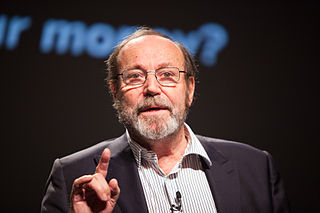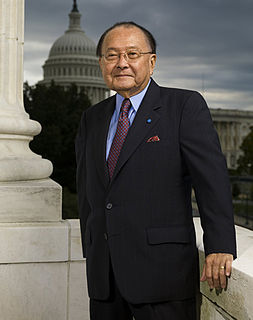A Quote by Kenneth Arrow
I think on the efficiency level, not only the distribution level, capitalism is a flawed system. It probably has the same virtues as Churchill attributed to democracy: It's the worst system except for any other. And I think that's right, but it cannot be thought that some unmitigated belief in free markets is a cure even from the efficiency point of view.
Related Quotes
Basically, for any complex to be sustainable needs to have a balance between two factors: resilience and efficiency. These two factors can be calculated from the structure of the network that is involved in a complex system. A resilient, efficient system needs to be diverse and interconnected. On the other hand, diversity and interconnectivity decrease efficiency. Therefore, the key is an appropriate balance between efficiency and resilience.
Capitalism does not permit an even flow of economic resources. With this system, a small privileged few are rich beyond conscience, and almost all others are doomed to be poor at some level. That's the way the system works. And since we know that the system will not change the rules, we are going to have to change the system.
There is a strong current in contemporary culture advocating ' holistic ' views as some sort of cure-all... Reductionism implies attention to a lower level while holistic implies attention to higher level. These are intertwined in any satisfactory description: and each entails some loss relative to our cognitive preferences, as well as some gain... there is no whole system without an interconnection of its parts and there is no whole system without an environment.
My Administration is committed to creating an unprecedented level of openness in Government. We will work together to ensure the public trust and establish a system of transparency, public participation, and collaboration. Openness will strengthen our democracy and promote efficiency and effectiveness in Government.
Obviously, our political system is profoundly corrupted by, among other things, the influence of money. But, at a deeper level, the current structure is flawed because it looks to citizens for only two things - votes and money. I don't think we will see any healing until citizens are viewed in a whole new way.
The legal system doesn't work. Or more accurately, it doesn't work for anyone except those with the most resources. Not because the system is corrupt. I don't think our legal system (at the federal level, at least) is at all corrupt. I mean simply because the costs of our legal system are so astonishingly high that justice can practically never be done.
People think what's in the US today is capitalism. It's not even close to capitalism. Capitalism doesn't have a central bank, capitalism doesn't have taxes, it doesn't have regulations; capitalism is just voluntary transactions. What they have in the US today I call crapitalism. But it's sad that so many people are confused and they think, 'Oh that's free markets in the US', when it's one of the least free market countries on earth.




































